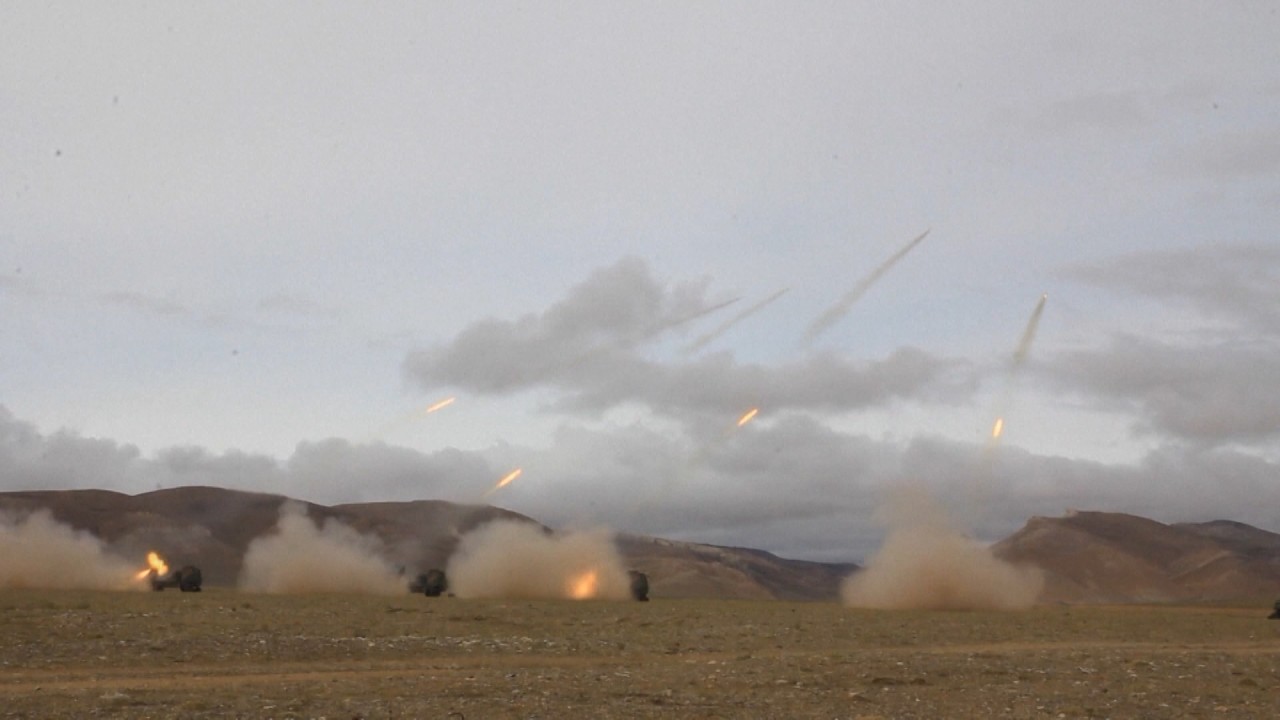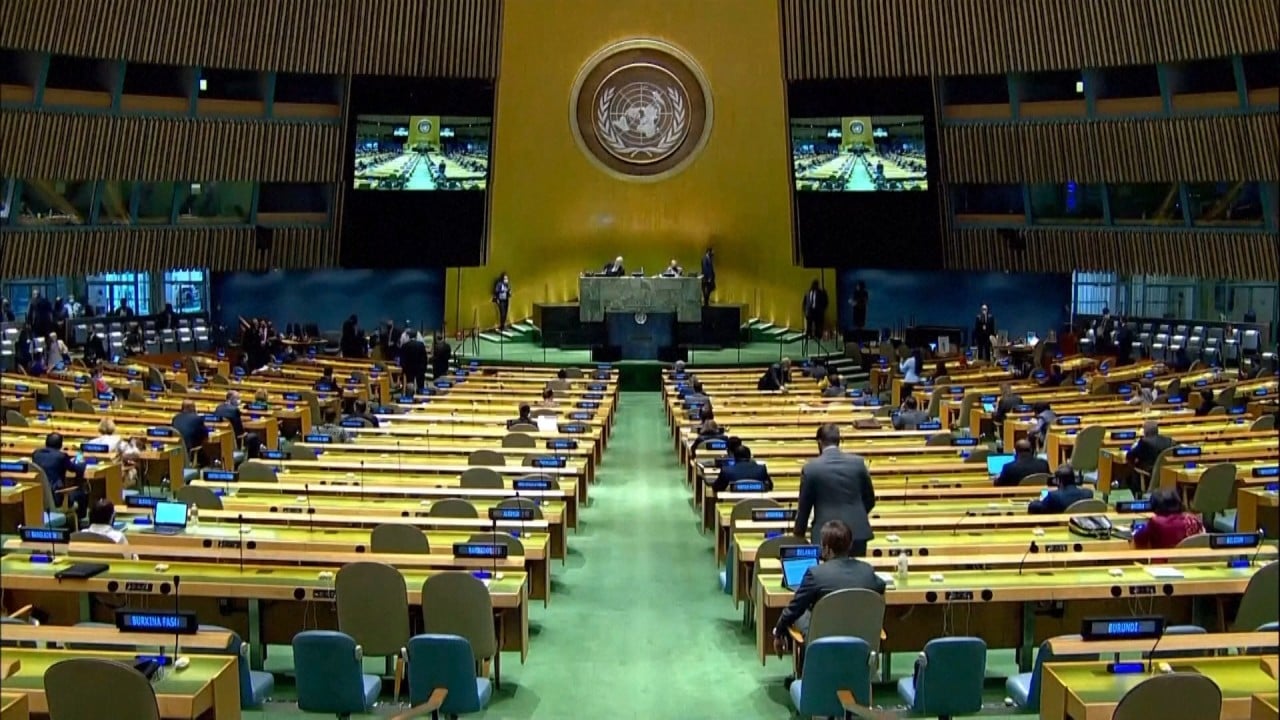
Most Americans view China as country of greatest threat to the US, says survey
- Think tank report finds relatively broad-based support among thought leaders for banning Huawei Technologies from 5G networks
- Four-fifths of national security and other experts in Asia, Europe and the US believe America would win a war right now with China, according to poll
Four-fifths of national security and other experts in Asia, Europe and the US believe America would win a war right now with China, according to the poll of the American public and of Asian, European and American “thought leaders” – experts from business, academia, human rights and national security communities – released Tuesday by the Centre for Strategic and International Studies. (CSIS).
But that number fell to just over half when respondents were asked who would come out ahead a decade from now. China has been expanding its armed forces rapidly, although the US remains far ahead by most metrics.

01:43
Chinese army conducts live-fire drill in high-altitude area
“Americans and others around the world have given up on the idea that the goal should be to change China into a free-market economy,” said Scott Kennedy, Chinese business and economics chair at CSIS.
“In fact we want China to follow the spirit of the international system, including reciprocity. And folks don’t want China to continue to game the economic system to their advantage.”
The results of the survey suggested that 71 per cent of US thought leaders and 42 per cent of the American public believed the Trump administration’s reliance on threats, tariffs and other tools in response to China’s economic policies has damaged US interests.
Negative views of China and Xi Jinping at record levels: international survey
Asked how best to counter China as a national security threat, four-fifths of US thought leaders, three quarters of overseas experts and 45 per cent of the American public said they believed that collaborating with other like-minded states was the best approach. This is at odds with US President Donald Trump’s distrust of multilateralism and preference for “America First” policies.
The poll, taken in August, surveyed 1,000 members of the US public and 440 thought leaders.
But the survey also highlights some of the disparity between thought leaders, who expressed strong support for multilateralism and alliances, and the more tepid response from the American public, said Jeff Moon, president of the China Moon Strategies consultancy, at a time of growing global populism and suspicion of globalisation.

03:02
Trump and Xi trade barbs over Covid-19 as world leaders voice fears at UN’s 75th General Assembly
Also notable was the wariness some countries expressed toward Beijing even as they sought to remain publicly neutral, added Moon, a former National Security Council official.
“Implicit in that is the desire to avoid Chinese economic retaliation,” he said. “They’re happy for Americans to take on China, and willing to cheer in the background, but not willing to take responsibility.”
While the belief in a US military victory over China in any conflict was higher among Asians than Europeans, most saw limited risk of armed conflict. “Most Americans and thought leaders in the United States, Asia, and Europe think war with China is possible but not likely,” the report said.
China’s trade gap with US 43 per cent bigger than when Trump took office
“Where we are in the bilateral relationship is really drawing on deeper tectonic plates,” said Jude Blanchette, China studies chair with CSIS. “We’re seeing a more enduring rivalry and not one which will shift in administrations in the United States” or China, he added.

00:42
China threatens retaliation over US plans to supply Taiwan with arms
“This is a function of growing concern in the United States about China and the Chinese challenges” as well as increased US public support for Taiwan, said Bonnie Glaser, director of the CSIS China Power Project.
The Chinese embassy in Washington did not respond to a request for comment.
While the survey suggests broad US and overseas support for allies working together to counter China, making that happen could be a challenge. “Negotiating a coalitional approach will be extremely complicated,” said Rush Doshi, director of the Brookings China Strategy Initiative.
China mounts live-fire test of new anti-tank missile in ‘Taiwan drill’
And if it turns out the US does not successfully work with allies, safeguard its intellectual property, innovate, protect its national security and engage with China – even as Beijing continues with its assertive policies – American policy could become increasingly extreme, analysts warned.
“It’s either going to be figuring out how to walk and chew gum at the same time or just going in a more, more hardline direction,” said Kennedy. “There are plenty of bills sitting on Capitol Hill and ideas waiting to be executed in the executive branch, upping pressure, not cooperation.”

